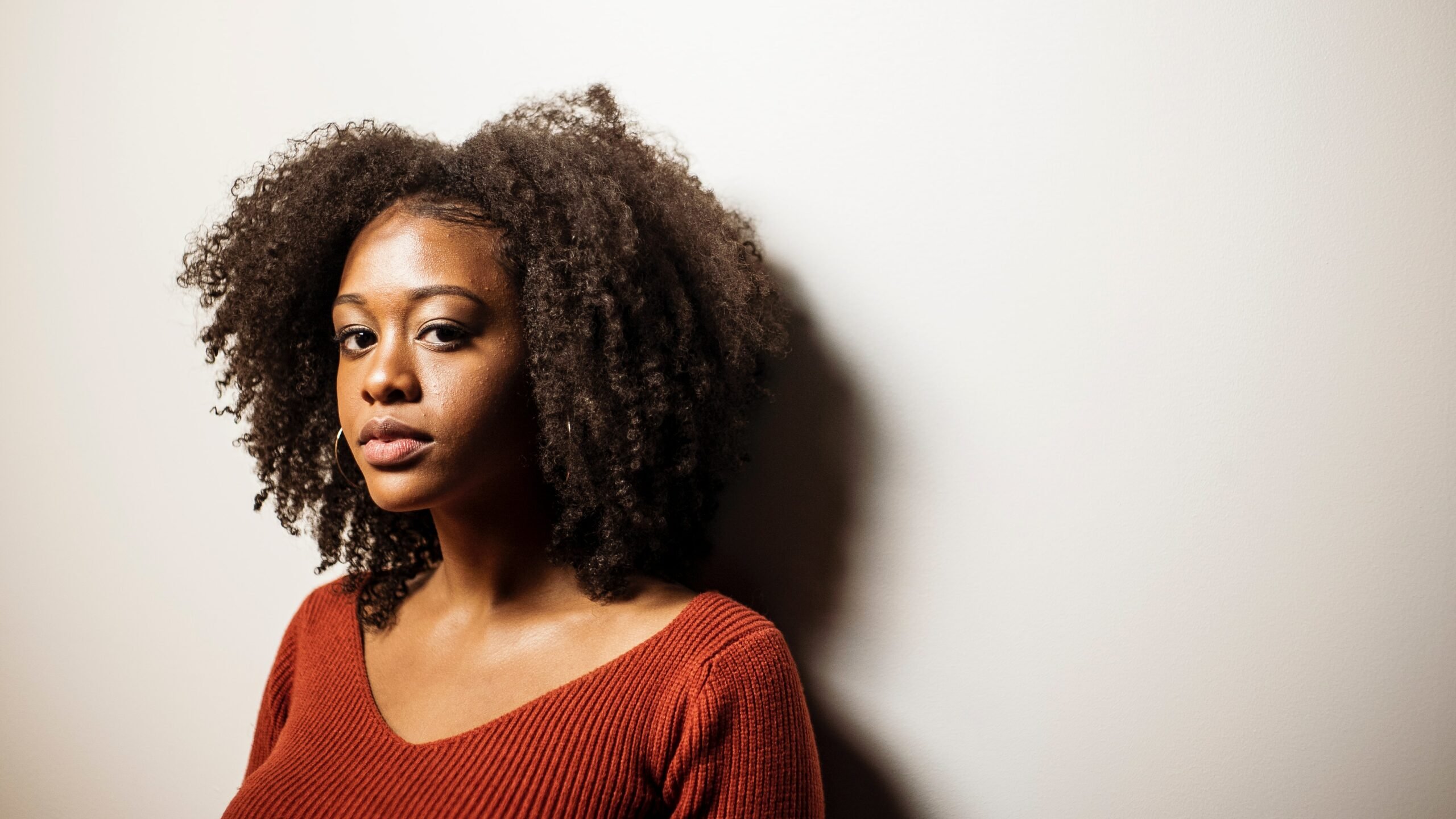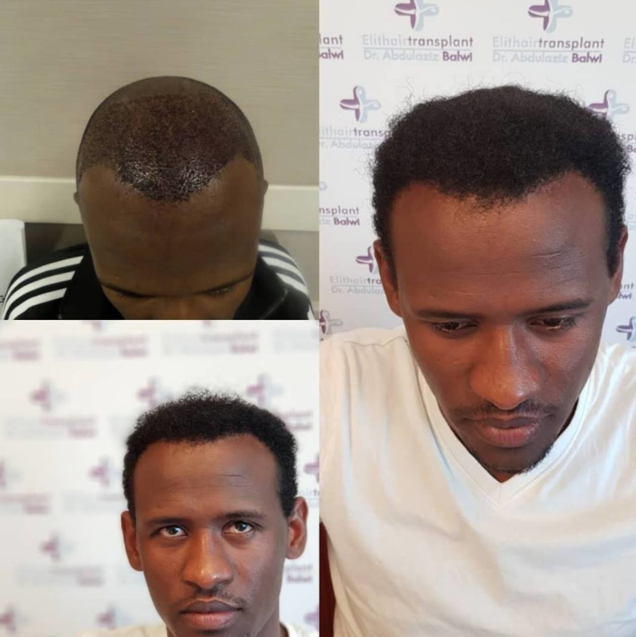
Afro Hair Transplant in Turkey, is it Possible?
Hair loss doesn’t discriminate, effecting people of all genders, ethnicities, and hair types. If you’ve been wondering if a hair transplant is a viable option for you, we’re here to reassure you that it is.
FUE and our advanced implantation techniques can restore Afro-Caribbean hair, offering a long-term solution to hair loss. In this article we’ll be exploring the various causes of Afro hair loss and the surgical techniques that can help.
Summary
- Unique Challenges of Afro-Hair Transplant
- Types of Afro Hair Transplant Procedures
- Benefits of Afro Hair Transplant
- Risks of Afro Hair Transplant Surgery
- Recovery and Key Takeaways
Unique Challenges of Afro-Hair Transplant
While Afro-hair transplants are possible, they can pose a challenge. Unlike the straight and vertical growth of Caucasian hair, Afro hair grows in S or Z shapes. The hair follicles themselves are also a different shape, which can make extraction and implantation tricky.
As a result, the risk of scarring is higher, as the incisions that are made when extracting the hair grafts are more likely to be visible. Afro hair also tends to grow slower due to this reason compared to Caucasian hair (0.9 cm/month and 1.3 cm/month, respectively).
Contrary to the outlined complications, studies suggest people with Afro hair tend to suffer hair loss at a rate far lower than those with Caucasian hair. This presents an interesting field of study in the differences between hair types, hair loss, and how these differences impact hair transplantation.
Causes of Baldness in Afro-Caribbean Hair
It’s all about the follicle shape. Afro hair follicles do not have a round shape, but a flat one. Keratin, a protective nutrient on the hair shaft, is not distributed in the same way as it is in other hair types. Instead, it is deposited unevenly on the hair. As a result, Afro hair is more fragile and more easily subject to external aggressions.
In colder seasons, this can cause difficulties in hair care. The pores tighten even more due to the lack of moisture, preventing the sebum from secreting properly. While the sebum stagnates under the skin and kills the roots, the scalp is deprived of it and dries out. This dryness makes styling curly or frizzy hair difficult, causing people to invest in protective styles and/or excess products that may exacerbate underlying hair issues.
Traction Alopecia
Traction Alopecia is a form of hair loss caused by prolonged tension on the hair and/or follicle. It is common in people with Afro hair who rely on wigs, weaves, and braids as part of their regular hair styling. In this form of hair loss, the hairline loses density due to hairstyles that are too tight or wig caps and bands putting pressure on the scalp.
Central Centrifugal Cicatricial Alopecia
Dubbed ‘hot comb alopecia,’ this type causes lasting hair loss in about 1 in 20 Afro-Caribbean women. The causes the crown to thin, similar to female pattern hair loss. Unfortunately, hair transplants are not considered a viable treatment option for active cases. Concealing the loss with wigs and extensions might worsen damage.

Types of Hair Transplant Procedures for Afro Hair
There are two main types of extraction methods as part of Afro-hair transplant procedures:
- FUE: The most common method. Extracts grafts from donor area for implantation in balding area. Can leave small scars from needle/punch.
- FUT: Less common. Removes scalp strip which is then surgically divided, before implanting follicles in balding area. A FUT scar is longer, more visible than FUE.
At Elithair, we only use the follicular unit extraction method (FUE technique) for the removal of the grafts at our ultra modern clinic. This technique consists of taking the follicular units one by one from the donor area defined in advance, generally at the back of the skull.
The implantation of these grafts in the recipient area can then be done using different techniques such as Sapphire, DHI or Percutaneous. These will be selected by your specialist after careful consideration and discussion with you.

Benefits of Afro Hair Transplant
Getting an afro hair transplant is a big step when it comes to restoring your hair. While there are other, less invasive, options to explore, they cannot provide the same long-lasting results of a transplant. If you do decide to take the plunge, you can take solace in the knowledge that Afro hair lends itself well to transplantation.
Graft Amount and Hair Health
This natural curvature of afro hair follicles creates dense, spring-like hair curls. Even though individual strands are finer, the unique structure of type 4 hair gives a remarkably full look. This means fewer hair grafts are usually needed for Afro hair transplant procedures to maintain density.
From a genetic point of view, curly or frizzy hair benefits from warm, tropical climates where the humidity level keeps it hydrated. The scalp is drier and thicker, and the pores are tighter. With this in mind, it might make more sense for you to consider getting a hair transplant in Summer, to ensure the best possible recovery and outcome.
Case Study
Jahy.C struggled with Afro hair loss for a long time before finally seeking a transplant from Elithair. In the video below, you can hear about her experience in her own words.
Risks of Afro Hair Transplant Surgery
The risks of Afro hair transplant surgery are similar to the risks of other types of hair transplant surgery, albeit the risks are slightly higher. Although fewer grafts mean fewer scars and less scalp trauma, melanin-rich skin may lead to more keloid formation. Keloids are excess healing tissue created by the body for wound healing. Afro hair's direction and curl may also result in more ingrown hairs.
Further risks include:
- Infection
- Scarring
- Bleeding
- Hair loss
- Damage to surrounding tissues
Despite these challenges, however, our experts meticulously prevent such complications, leaving you with the best possible results.
Choosing the Right Surgeon
Only a very skilled surgeon can perform the procedure, as the risks involved can lead to scarring and other complications. Only a surgeon with many years of experience and a team who can extract and implant grafts with the utmost precision and delicacy is able to perform it successfully. While choosing, be sure to check their success with other afro-hair implants - with a special focus on the results.
Recovery and Key Takeaways
Ready to conquer hair loss? An Afro hair transplant in Turkey could be the right choice for you. Afro hair's complex structure demands expertise, and at Elithair, our experience ensures a smooth process. We offer insights to make informed decisions about your hair's health.
Afro hair restoration may take slightly longer to recover, but our skilled surgeons ensure minimal downtime. For more information, contact our advisers about this subject or our services. We're here to assist you.
FAQ
How does the texture of Afro hair affect the hair transplant process?
Afro hair’s unique curl pattern and follicle shape make extraction and implantation more complex. The curled follicles require careful handling to avoid damage and ensure successful grafting.
What special techniques are used for Afro hair transplants?
Specialised FUE (Follicular Unit Extraction) techniques are used to accommodate the curl pattern of Afro hair. Tools and methods are adapted to manage the curvature and reduce the risk of graft damage.a
Can both men and women undergo an Afro hair transplant in Turkey?
Yes, both men and women can undergo an Afro hair transplant in Turkey. The hair surgery procedures are tailored to individual needs, regardless of gender, to address specific hair loss patterns and goals.
What is the cost of an Afro hair transplant in Turkey compared to other countries?
The cost of an Afro hair transplant in Turkey is generally lower than in the UK and EU. This makes Turkey a popular destination for hair transplant procedures, offering high-quality services at more affordable prices.
How should patients prepare for an Afro hair transplant procedure?
Patients should avoid smoking and alcohol before the procedure, follow a healthy diet, and discuss any medications with their surgeon. Proper scalp care and conditioning might also be recommended to optimise the scalp’s condition for surgery.
What post-operative care is required after an Afro hair transplant?
Post-operative care includes gentle washing, avoiding direct sunlight, and refraining from strenuous activities. Patients should follow the surgeon’s aftercare instructions closely to ensure optimal healing and graft survival.
How long does it take to see the final results of an Afro hair transplant?
Final results of a hair transplant can typically be seen within 12 to 18 months post-surgery. Hair growth begins a few months after the transplant, with gradual thickening and natural-looking results developing over time.


